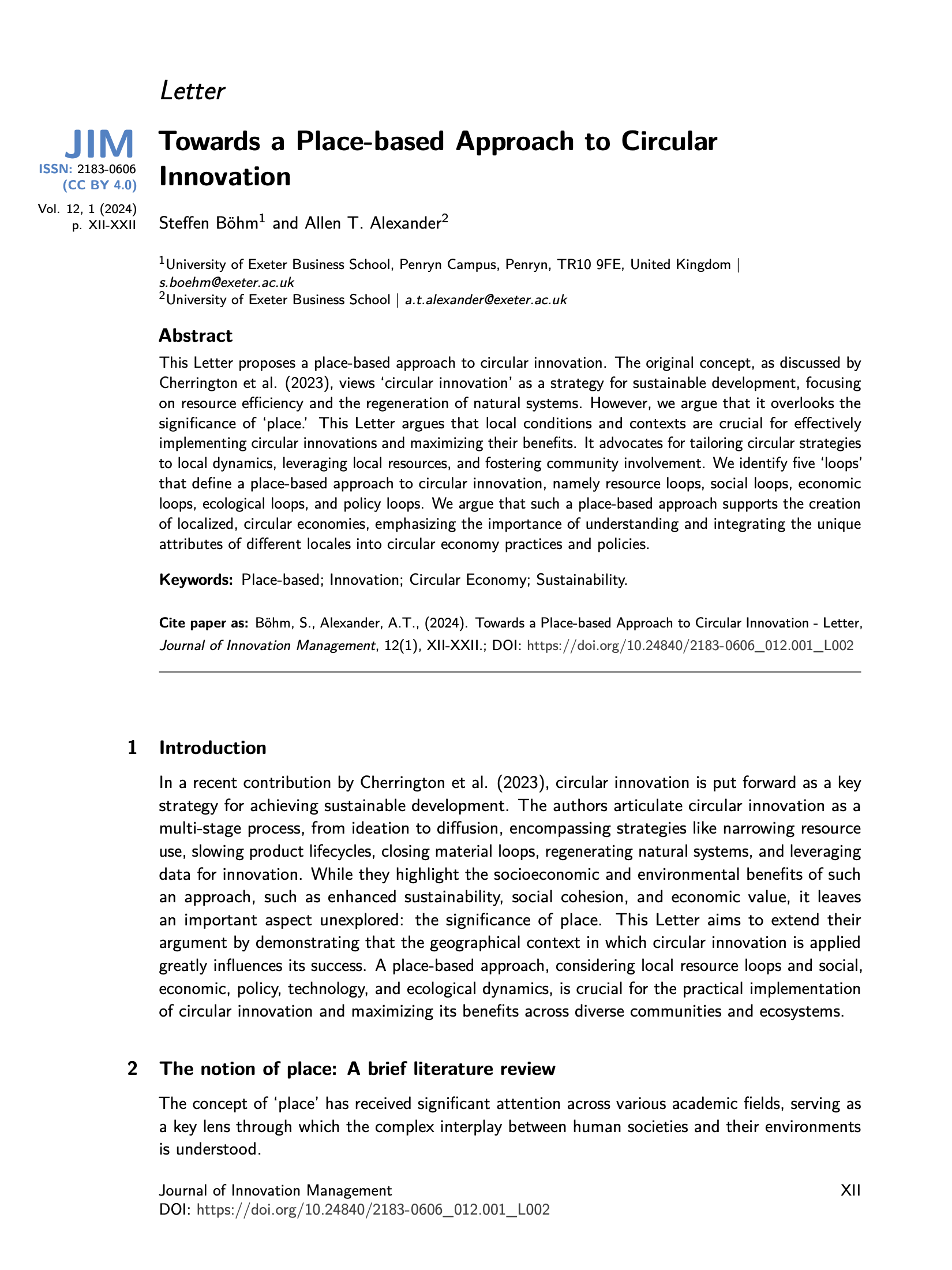Towards a Place-based Approach to Circular Innovation
Main Article Content
Abstract
This Letter proposes a place-based approach to circular innovation. The original concept, as discussed by Cherrington et al. (2023), views ‘circular innovation’ as a strategy for sustainable development, focusing on resource efficiency and the regeneration of natural systems. However, we argue that it overlooks the significance of ‘place.’ This Letter argues that local conditions and contexts are crucial for effectively implementing circular innovations and maximizing their benefits. It advocates for tailoring circular strategies to local dynamics, leveraging local resources, and fostering community involvement. We identify five ‘loops’ that define a place-based approach to circular innovation, namely resource loops, social loops, economic loops, ecological loops, and policy loops. We argue that such a place-based approach supports the creation of localized, circular economies, emphasizing the importance of understanding and integrating the unique attributes of different locales into circular economy practices and policies.
Article Details
Authors who publish with this journal agree to the following terms:
- Authors retain copyright and grant the journal right of first publication with the work simultaneously licensed under a Creative Commons Attribution License that allows others to share the work with an acknowledgement of the work's authorship and initial publication in this journal.
- Authors are able to enter into separate, additional contractual arrangements for the non-exclusive distribution of the journal's published version of the work (e.g., post it to an institutional repository or publish it in a book), with an acknowledgement of its initial publication in this journal.
- Authors are permitted and encouraged to post their work online (e.g., in institutional repositories or on their website) prior to and during the submission process, as it can lead to productive exchanges, as well as earlier and greater citation of published work (See The Effect of Open Access).

